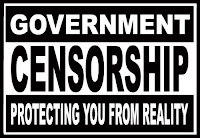Ethical Issue Surrounding FCC's Net Neutrality Controversial Proposal
Summary
In January of this year, District of Columbia Circuit
Court of Appeals, in favor of Verizon, struck down one of the Federal Communication
Commission (FCC) auxiliary rules
that requires internet service providers to treat internet traffic equally.
Now, in June, the FCC has opened its net neutrality law for review. This new amendment
will allow internet service providers (ISPs) to make some internet connection stronger
and faster than others. Also, it will make it legal for internet service
providers to strike deals with companies that stream data while undercutting
other companies who do not pay extra for smooth streaming.
At present, ISPs collect money from both data-streaming
providers and consumers. Neflix and other streaming companies pay for bandwidth
and high quality feeds. And, the average internet user pays for fast connection.
Yet, consumers still get network issues. When you add the new FCC proposal to
the present mix, it is easy to see why this proposal has people in stitches.
Stakeholders:
Internet
service providers:
ISPs, like Verizon, will be the only stakeholder benefitting from this FCC
amendment. Their profit margin will increase while network improvement becomes
an option. You bet they will choose not to deliver quality services which both
consumers and companies pay for. I mean, why should they?
Consumers: without a doubt,
consumers will suffer the most. They will be discriminated on by internet
service providers. For example, if
Verizon isn't in agreement with Netflix over bandwidth, consumers of both
services will suffer. Verizon customers would not be able to access Netflix
without glitches or slow connection, even some already pay premium for Verizon
FiOS, dishing about $110 to $174.99 every month.
Cable
companies or companies who stream content: right now, Netflix and
Verizon are involved in a war. Netlix switched its old loading sign to a
specific one, calling out Verizon. In response, Verizon sent Netflix a
cease-and-desist letter, promising legal action.
With
this new proposal, data streaming companies will have to shell out more cash
for quality. This cost, in turn, will be passed to customers through increased
subscription fee.
Also,
companies who have expensive deals with ISPs would have an unfair advantage
over those who do not. This would cripple the competition in the industry.
Without competition, those with expensive deals may become lax or misuse their
powers. Small, independent companies are pretty much screwed.
Solution:
Rather
than making a mockery of net neutrality and killing the open internet, Tom
Wheeler, the chairman of the Federal Communications Commission, can tighten up
the net neutrality law. Net neutrality was created to ban unreasonable and
unjust internet traffic discrimination. Also, the new proposal could be amended
to include a clause that says that ISPs must uphold their agreement with
consumers and not lower internet speed below what the customer pays for. Consumers
who pay premium for higher internet speed should be entitled to ISPs delivering
such speed.
Abbruzzese,
Jason. “FCC Advances Controversial Proposal on Net Neutrality.” Mashable.com
Mashable, 14 May 2014. Web.
16 May 2014. < http://mashable.com/2014/05/15/fcc-net-neutrality-proposal/>



Comments
Post a Comment